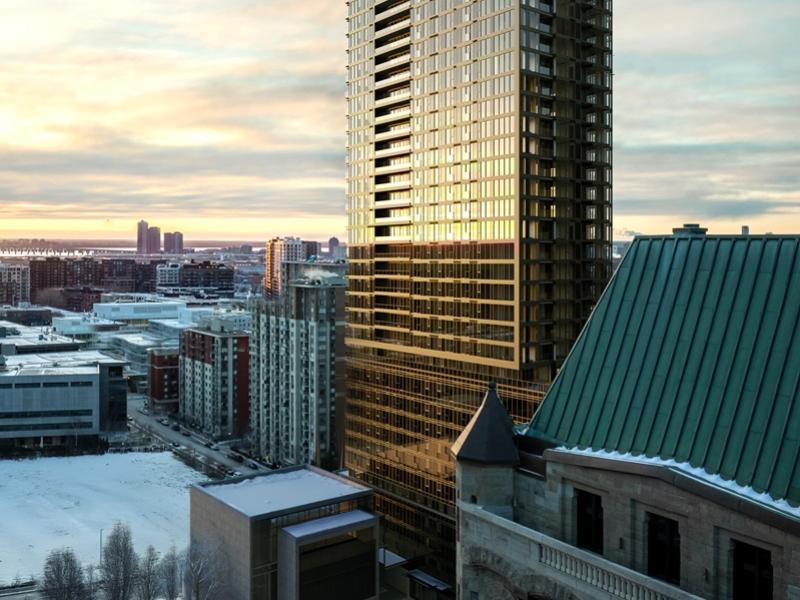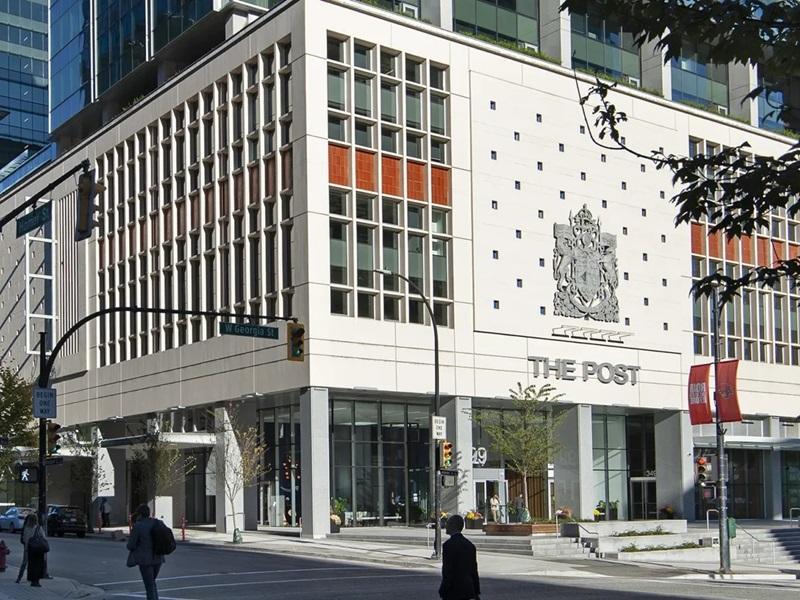
Arlin Markowitz, executive vice-president / urban retail team with CBRE in Toronto. (Courtesy CBRE)
The impact of the COVID-19 pandemic on the retail industry is spurring developers and property managers to think differently as to what retail space in condo and office towers might look like in the future.
Arlin Markowitz, executive vice-president/urban retail team with CBRE in Toronto, said COVID is making developers and other real estate stakeholders consider options for how space will best be utilized.
“But, that doesn’t mean necessarily that things are going to change,” he said. “While there has been some pain in the retail market due to COVID, I think anybody with any kind of mid- to long-term vision understands that this is not permanent.
“Whether it’s in six months or a year, people will be back in the office. They will be back working downtown. They’ll be vaccinated and things will get back to normal eventually. So I don’t see people making any extreme changes.”
However, there is at least one area he thinks will almost certainly be impacted: space allocations for eateries and restaurants.
“I think people are rethinking larger space and thinking about how to best include patio space into their potential retail restaurant space. Patios have never been so important and I think that will be a permanent change.
“If you’re going to rent space for a restaurant nowadays, if it doesn’t have a patio it’s so much less attractive. It’s on everybody’s mind . . . but I think the smarter people are taking more of a pause rather than taking drastic changes because they understand it’s not forever.”
The constant evolution of retail
Markowitz said retail and retailers are always evolving. He said building owners and managers may look in the future to target more essential-needs retailers into their developments.
“Those types of brands have never looked so attractive. If you can lease space to a grocery store, pharmacy, bank, if you have fast food in a drive-thru environment, that’s always going to be super popular. There are some things where their value and their strength has become amplified,” said Markowitz.
“One thing developers are looking at is flexibility to carve up retail space into more smaller stores rather than bigger stores. I think one of the formats of retail that was hurt in this was large, multi-level space.
“So, the most attractive retail space today is smaller space with patios and after that it’s just going to be smaller ground-floor space. When you start to get this super-large, two-level space, that’s the stuff that’s most challenging in this environment.”
A longer view of consumer behaviour

Andrew Duncan, senior vice-president of development at RioCan Real Estate Investment Trust. (Courtesy RioCan)
Andrew Duncan, senior vice-president of development at RioCan Real Estate Investment Trust, said it’s still too early to understand how COVID will change consumers’ longer-term behaviour.
“I think there’s no doubt it will. On the retail side we are a party to that, especially when we’re doing a mixed-use development. But I think where we’re going to see an impact on this, and where we’re going to try to be very observant, is how our tenants behave in terms of how they want to plan their space,” said Duncan.
“We’ve got to be very careful on it and I think we are seeing (businesses) that operate in unenclosed centres being a little more comfortable in moving forward with their program because they know there’s a component of drive-up, curbside pickup that they can do. They have all these options.”
On the residential side, where RioCan is rapidly expanding with both apartment and mixed-use developments, there are other considerations.
“Do we need to look at increased balcony size, do we need to look at potentially larger common areas?” he said. “A lot of amenities that we have in some of our mixed-use projects that are residentially based are shut down right now.
“No one can use a gym, no one can use an office space because it’s shared space. But, in the future does that space have to have a little more thought behind it in terms of how you potentially provide ongoing social distancing if you need, or how you can repurpose that space.”
Essential retail has jumped in value
Duncan agreed retailers considered essential are definitely more on the radar.
“We do believe that gyms and restaurants will be part of our tenant mix going forward, but we wouldn’t be responsible unless we were looking at situations in the future where we’re looking whether or not the tenants we’re putting in spaces are ‘pandemic-proof’ from an operating standpoint,” he said.
“We love grocery stores. Grocery stores in the context of our mixed-use centres. Grocery stores in the context of strip malls. They’re great tenants to have. And pharmacies in kind. It’s also forced us to look at a lot more medical uses, too, because medical uses are becoming more commercially based.”
Duncan said potential restaurant tenants RioCan is talking to are pushing for patio space and details on how that will look. Restaurants are also focusing on how people pick up food.

Michael Kehoe, broker/owner and a retail specialist with Fairfield Commercial Real Estate in Calgary. (Courtesy Fairfield Commercial)
Michael Kehoe, broker/owner and a retail specialist with Fairfield Commercial Real Estate in Calgary, said condo towers are lucrative properties for retail food-service tenants at street level and in building podiums.
“With the rise of the work-from-home trend, this is providing a captive audience for food-service tenants for takeout and delivery, especially strengthening their lunch offerings.”
Personal services attractive to multifamily
Although many retail and professional tenants offering personal services are closed because of the lockdowns, the rise of localism and customers patronizing uber-local services also makes these buildings attractive places to lease.
Kehoe said this is a win-win for the businesses as well as for the tenants – such services can almost be considered part of the amenity mix of the building.
In downtown office buildings hit hard because central business districts have been hollowed out due to lockdowns and the work-from-home trend, property managers face a dual concern.
“They’re looking where they can recruit pop-up tenants that will fill space to at least cover their costs in the short- to medium-term,” said Kehoe.
“Of course, the long-term game is to have solid tenants that enhance the image of the building at street level and provide amenity services, goods and food for the tenants in the building.
“But, I think that’s been pushed out. Right now it’s just a survival plan to keep buildings’ street level lit and occupied with short-term and pop-up tenants to occupy space until things can turn around.”











